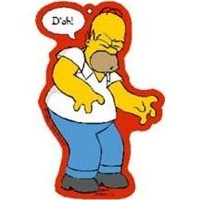 Dear Diary,
Dear Diary,My manager showed me this timely N.Y. Times article aptly titled:
Pity the Scientist Who Discovers the Discovered
By GINA KOLATA
IN 1996, Rakesh Vohra, a professor at Northwestern University, and his colleague Dean Foster published "A Randomized Rule for Selecting Forecasts," a paper in the journal Operations Research. It illustrated how a random investor could outperform a group of professional stock pickers simply by following a "buy and hold" investment strategy.
It was important research, the authors believed, until they learned that the same discovery had been made at least 16 times since the 1950's. And no one, Dr. Vohra said, ever realized they were not doing original work.
The discovery that your discovery has already been discovered is surprisingly common, said Stephen Stigler, a statistician at the University of Chicago who has written about the phenomenon. Not only does it occur in every scientific field, he said, the "very fact of multiple discoveries has been discovered many times."
The result of duplicative research may be no more serious than chagrin over wasted time. But in other cases, say those involving medical research, there can be a real risk of harm to patients.
It may seem odd that scientists in the Internet age spend years on a line of research, even bet their careers on it, without having first determined that their mountain had not already been climbed. But Dr. Stigler said that scientists often are ignorant of the work being done by others in their field, and searches of scientific literature can be hard to conduct. Web search engines, for example, look for words, not ideas, and Dr. Vohra said he discovered that every researcher who had made his discovery had given it a different name and description.
Of course, it can be embarrassing to learn that your discovery isn't one. But the best defense may be a good offense.
For example, there is the oft-told story about Larry Shepp, a famous mathematician at Rutgers University. Dr. Shepp, when told that a piece of work he thought was his discovery actually duplicated another mathematician's breakthrough, replied: "Yes, but when I discovered it, it stayed discovered."
For complete article http://www.nytimes.com/2006/02/05/weekinreview/05kolata.html